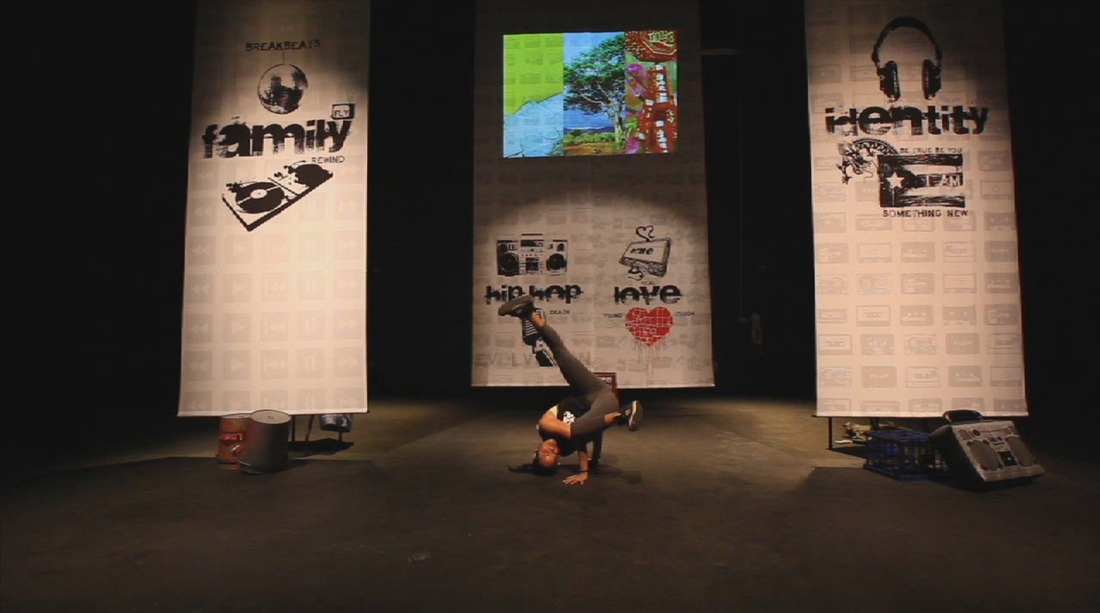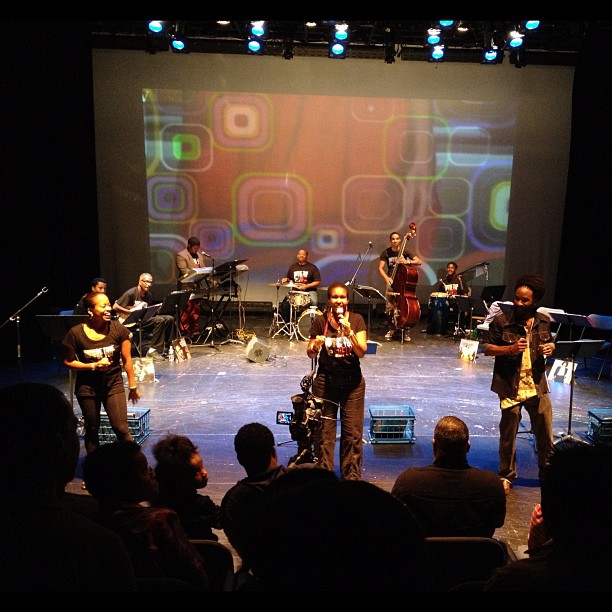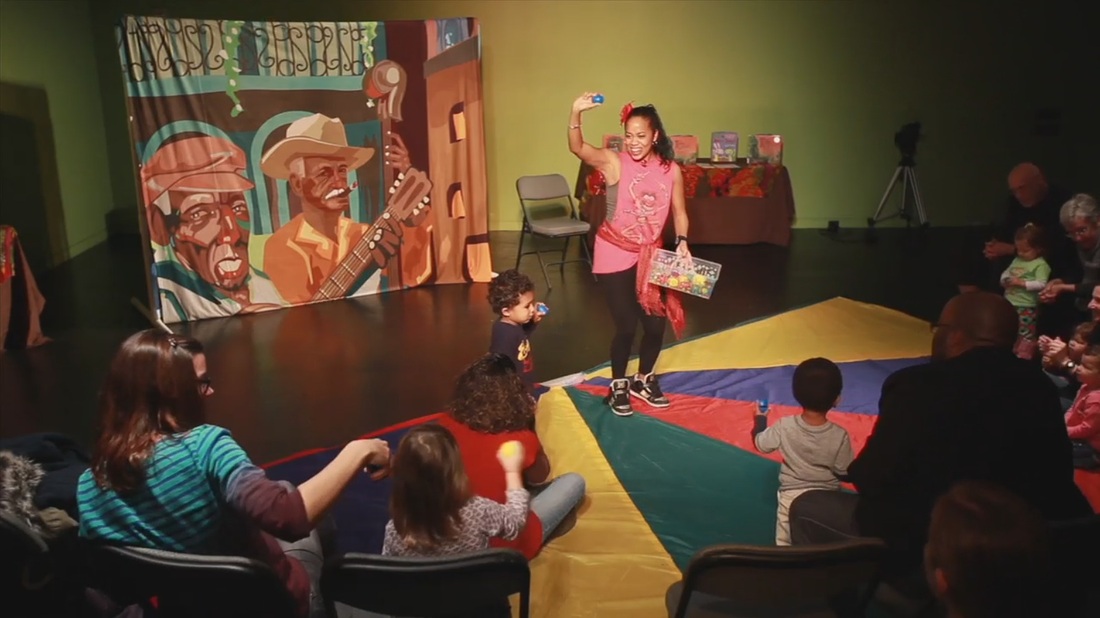|
JL: How long have you lived and worked as a playwright in DC? What brought you here? Why have you stayed?
PH: I've been a performing artist in this area since the late nineties. I came here for college (UMD-GO TERPS) and fell in love with the DMV area. I’m also able to make a solid living in DC, doing what I love with nearby family and artistic support. JL: Have you ever been a member of a DC area playwrights writing group? If so, did you find it useful? Would you recommend that other playwrights join them? PH: I am not a member of any playwright’s group, but I think that their presence is important. It’s nice to know that there’s a network of people who can offer advice, resources and support. Although I wear the “playwright” hat, I don’t rock it with swagger. My strengths are really performance and choreography, but playwriting is a skill that I developed in Arena Stage’s Student Playwrights Program. Through many years of workshops, master classes and teaching, I began to apply the skill to my own work. JL: In DC, we have the Capital Fringe Festival, the Intersections Festival, the Source Festival, the Kennedy Center's Page-to-Stage Festival, the Black Theater Festival, and the Hip Hop Theatre Festival. We also have the Mead Lab at Flashpoint Theater Lab Program. Have you participated in any of these? If so, can you speak about your experience? PH: I’m thrilled that I’ve been a part of each of these festivals and the Mead Lab. As a playwright, I’ve had works in the Intersections Festival, Hip Hop Theatre Festival, Mead Lab and the Page-to Stage festival. Each of them is great for various reasons, but I learned that it’s important to know who your audience is and how to adapt your piece to maximize the experience. I am most grateful to the Mead Theatre Lab and to the Intersections Festival. The Mead Lab helped theHegira Theatre Company to develop my first piece with ample artistic resources. Creating my show (PAIGE IN FULL) at the Mead Lab was really the launching pad into coming into my own as an independent artist. I consider the Intersections Festival (and the Atlas) my artistic home. The Atlas allows me to continue work with my company (B-FLY ENTERTAINMENT) with an emphasis on multi-disciplinary arts for the hip-hop generation. I’ve produced all of my original works there including PAIGE IN FULL (PIF), Havana Hop (HH), Liner Notes and the Nayika Project (Spring 2013). JL: What kind of work do you do to pay the bills? How do you balance this work with your writing? PH: For the first time ever, I’m able to pay the bills solely with the work that I created! I tour two of my shows nationally and that’s been able to sustain me. Even still, I almost always make time to work as a performer, teaching artist, producer and choreographer. JL: How many plays have you had produced in the DC area? Were any of these plays self-produced? If so, where and what did you learn from that experience? PH: I’ve self-produced three and I'm working on a fourth. As an artist, I’ve learned to appreciate and respect the development process. Rewrites, feedback and audience input are all very important parts of the whole. I’ve also learned to trust my artistic team. I try to align myself with artists who have same work ethic, aesthetic and who can genuinely see the goals and potential of the given project. As a producer, planning, timing and meticulousness is everything. I’m an uber-organized perfectionist, which is both a curse and a blessing. Nothing pleases me more than to be prepared for every need, want or outcome. I also take pride in budgeting, taxes and tax deductions. From the beginning, I wanted to run my LLC clean and balanced. JL: If you could be produced at any theatre in DC, which would it be and why? PH: My own. Once I get my space, I’ll be in touch with all the women playwrights of DC! Holla! JL: DC audiences are ... PH: ... Either old and dying or young and starving. JL: DC actors, designers and directors are .. PH: ... Some of the most generous, supportive and talented people I know. JL: DC critics are ... PH: ... A vital part of the equation. JL: How do you feel the DC theatre community has addressed the issues of race and gender parity? How has this particular issue impacted you and your ability to get your work produced on the main stages? PH: This ishh gets me heated. I can give you the full version over happy hour but in general, the entire theatre community could take more risks and bold stances on race and gender. JL: What advice do you have for an up and coming DC based playwright or a playwright who has just moved to D.C.? PH: Explore the different types of DC audiences by going to different shows at different theaters. I think it’s easy to oversaturate the market with same mainstream trendy ish. As a writer, I represent an underserved audience who are more than willing to buy tickets to see their stories on stage. Find your audience and become their voice. JL: What's next for you as a playwright? Where can we keep up with your work? PH: As a playwright I’m working with classical Indian dancer Chitra Kalyandurg to write the Nayika Project. The Nayika Project will fuse dance, theatre and spoken word to give a contemporary spin to tales of resilient, relatable heroines from Indian myth. It premieres March 1st at the Intersections festival. As the year comes to a close, I’m fortunate to be busy!
And I’ll continue to tour PIF AND HH throughout the end of the year to NY, ND, FL and MD. You can stay updated at: www.paigehernandez.com, www.paigeinfull.com, www.bflyentertainment.com, Thank you Jacqueline Lawton! This series has been inspiring, insightful and very necessary. Can’t wait to support you and all the lovely playwrights soon!
0 Comments
Your comment will be posted after it is approved.
Leave a Reply. |
My BlogI'm a playwright, dramaturg, and teaching artist. It is here where you'll find my queries and musings on life, theater and the world. My posts advocate for diversity, inclusion, and equity in the American Theatre and updates on my own work. Please enjoy!
Categories
All
Archives
June 2020
Reading List
|



